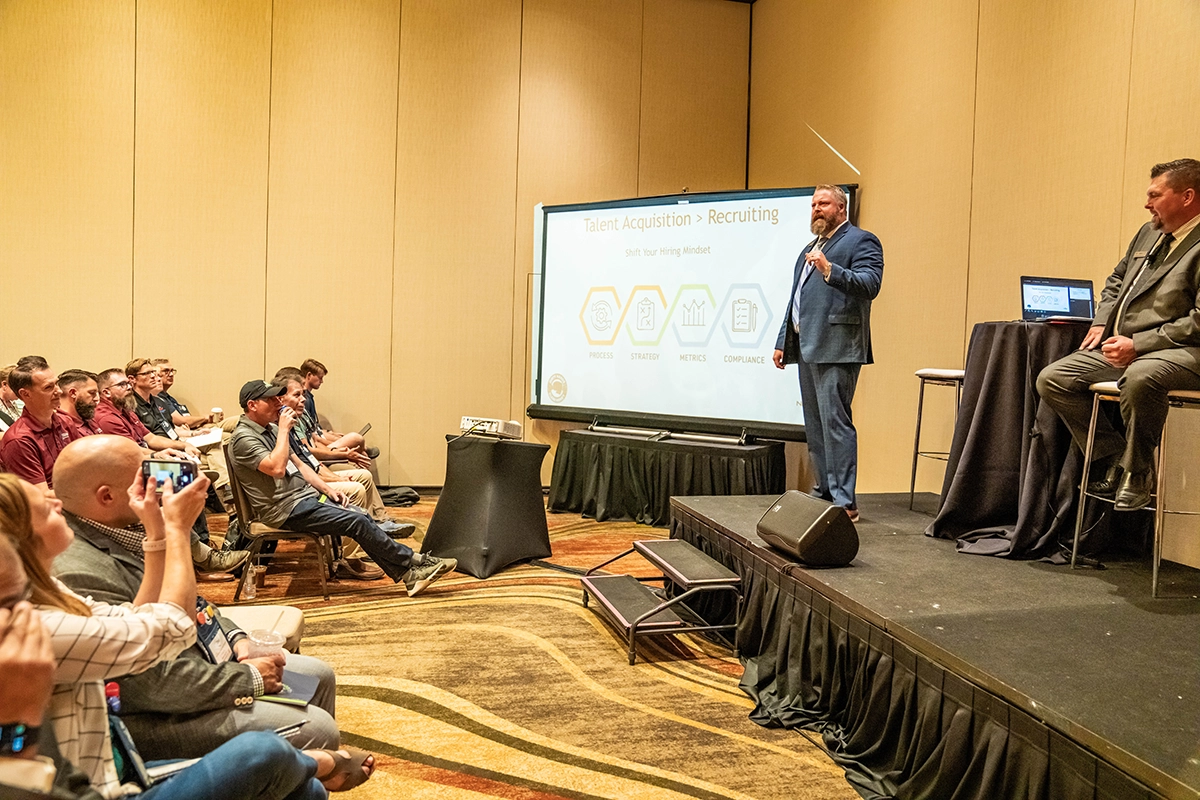So, you need a new person on your leadership team but don’t have time to find that person yourself. What do you do?
You may have an in-house recruiter, but that person’s primary responsibility is finding and hiring technicians, call center representatives, and office staff. Finding a leadership-level employee takes a lot of time, which your in-house recruiter may not have.
This is where an executive recruiter can be a tremendous asset – they can find that leadership-level employee for you. This is what I do; I’m an executive recruiter for Nexstar Network. Many of the company leaders I support recognize that there’s great value and a strong ROI for them when they use this kind of specialty recruiting service. In recent years, I’ve helped place dozens of leaders at contractor business locations of all sizes – the need is there, no matter if you’ve got five trucks or 50 at your company.
But how does a relationship with an executive recruiter work?
Great question. Here are some key points to consider when enlisting the expertise of an executive recruiter.
1. Pricing – Executive recruiters charge varying fees. The fee is typically a percentage of the placed candidate’s first year of compensation, and it usually comes with a guarantee to protect you if the candidate turns over within the first three to six months. This is typically outlined in a contract that the recruiter will send you. Make sure you understand the pricing and payment terms before signing the contract.
2. Industry experience – Does the executive recruiter have prior experience recruiting people in our industry? If not, there could be a learning curve. The process could take longer, as there may be a few “false starts” regarding the candidates the recruiter is sending and recommending to you.
When selecting an executive recruiter, it’s essential to choose a professional with specific industry experience, as that recruiter most likely has contacts with right-fit people across the country that they can rely on for connections, applicants and referrals. A recruiter who understands the home services model and understands a service manager’s role and responsibilities in this industry is key. For example, you might need to ensure that the candidates are family with the home service model and not experienced working for large, multi-family companies, new construction or commercial services.
3. Consistent communication – Once you’ve engaged the executive recruiter, clear, consistent, and timely communication is vital. The recruiter’s job is to find a qualified candidate with the character, competence, and chemistry needed to perform the job at a high level and in a timely manner. As the hiring manager, be transparent and communicative with the recruiter so they can zero in on the suitable candidates for your job and save everyone time. Was the candidate a fit? Why or why not? Let the recruiter know. Give the recruiter timely feedback as soon as possible after the interview so the recruiter can communicate the feedback to the candidate and all parties can move on. I can speak to this from experience. The hiring managers I’ve worked with who have been prompt in their feedback and communication have consistently been more successful at finding highly qualified candidates.
4. Managing the process – The executive recruiter can also assist you by helping to manage the hiring process. Besides sourcing and screening candidates for you to review, they can manage the interview process by scheduling interviews, facilitating interviews, advising on compensation packages that might include relocation, and assisting with the formal offer.
Look to the executive recruiter as an adviser; they have a lot of experience handling the hiring process, from A to Z. Typically, the recruiter has built a relationship of trust with the candidate. From the initial contact to the interview, keeping in contact with the candidate during the hiring process allows the recruiter to understand the candidate's needs. This helps the recruiter to properly communicate those needs with the hiring manager. It also saves the hiring manager the time he or she would have holding these same conversations with the candidate.
Follow these key points to make the process of collaborating with an executive recruiter more seamless and increase the likelihood of producing excellent results for your business.
Steffan Busch is an Executive Recruiter and Talent Acquisition Coach for Nexstar Network, where he helps support the world’s best tradespeople on their quest to become the world’s best businesspeople. Contact Steffan at SteffanB@NexstarNetwork.com.





